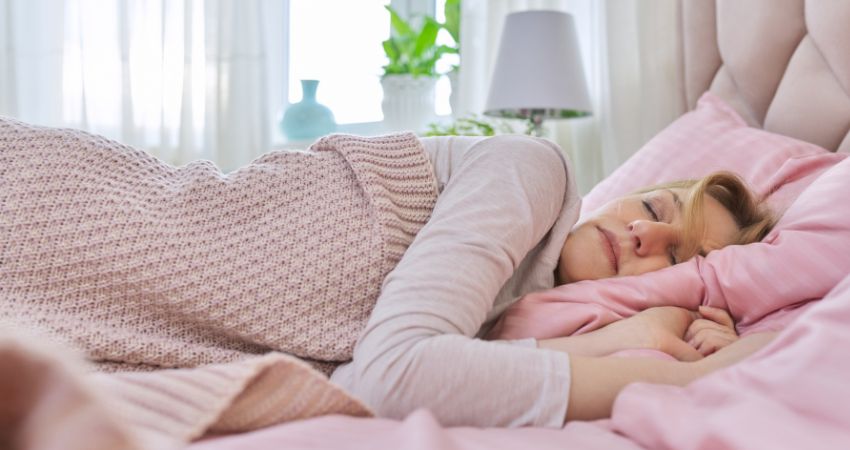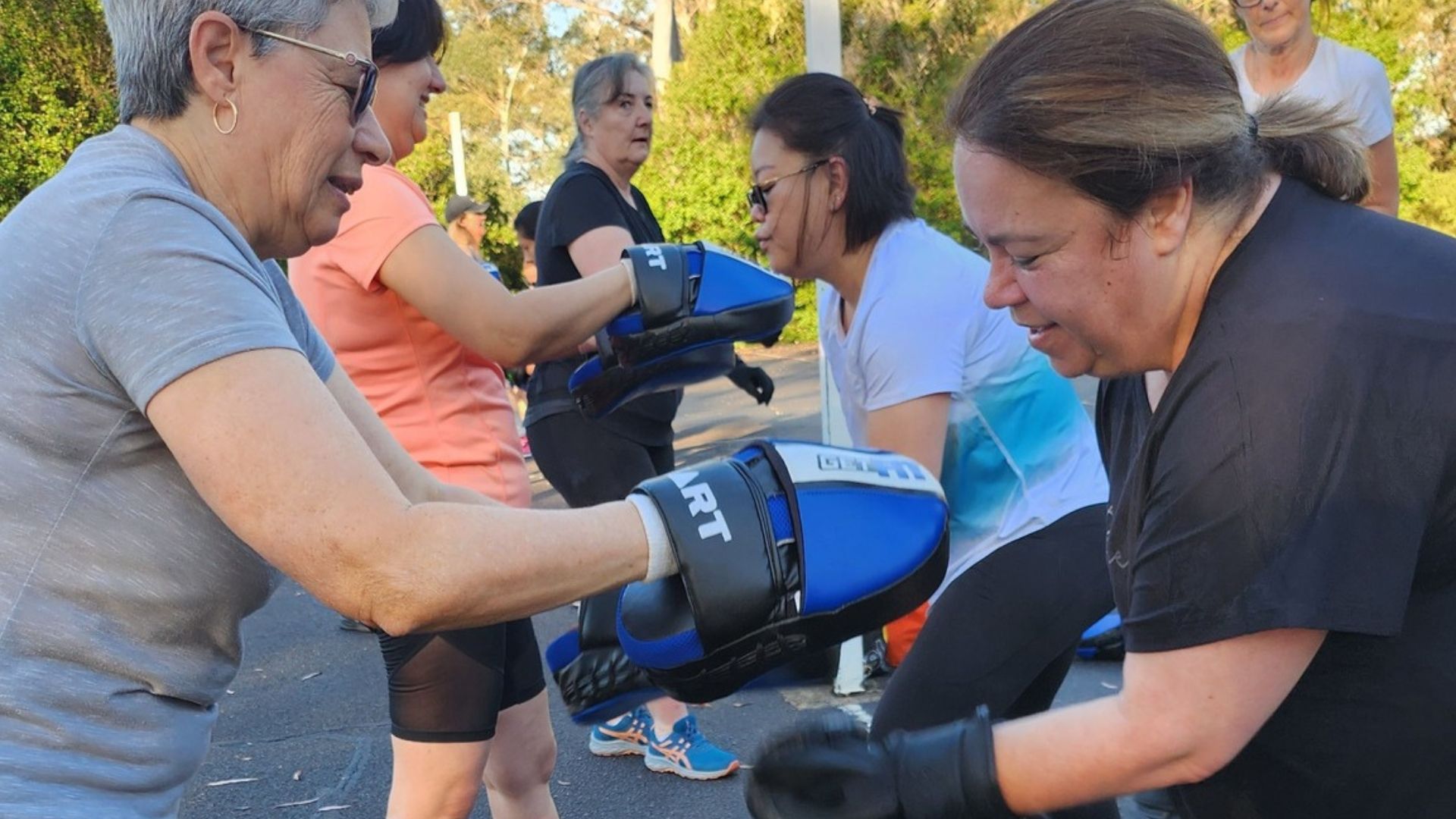How to Get Better Sleep (At Every Age)

Getting a good night’s sleep is essential for your overall health and wellbeing, but the strategies for achieving quality rest can vary depending on your age. Ageing affects your ‘circadian rhythm’ – which is basically your body’s internal clock that decides when you should sleep and wake up. These changes often lead to spending less time in deep sleep, sleep disruptions, and daytime drowsiness.
Here’s how you can optimise your circadian rhythm and get better sleep at every stage of life. Remember, these are all habits to adopt and carry on throughout your whole life for your best chance at permanently maintaining good sleep hygiene.
In Your 30s
In general, we need about 7-9 hours of sleep each night at any age. During this time, we need to get about 2 hours of REM sleep per night. This is deep sleep characterised by relaxed muscles, rapid eye movement and increased brain activity. It helps us to boost brain functions, store memories, develop our emotional processing skills, and flex the creative part of our minds. However, the amount of REM sleep we get per night decreases each decade up until around the age of 60.
Preventing this decline becomes difficult in your 30s due to the stressors of maintaining a balanced work/life schedule, starting a family, financial burdens, etc. Prioritising sleep becomes increasingly important during this decade to maintain energy levels and stop stress from piling up. The best method to prevent this deep-sleep decline is to start focusing on your sleep hygiene ASAP and build healthy habits.
Establish a Consistent Sleep Schedule
Set a regular bedtime and wake-up time to regulate your body’s internal clock, even on weekends. This helps to keep your circadian rhythm consistent. Try to create a relaxing bedtime routine. Wind down before bed with calming activities like reading or taking a warm bath to signal to your body that it’s time to sleep.
Limit Stimulants
Reduce caffeine and alcohol intake, especially in the afternoon and evening, as they can disrupt sleep patterns. You should also avoid looking at screens for at least an hour before bed, as the blue light they emit can disrupt the melatonin surge (the sleepiness hormone) needed to help you fall asleep.
Optimise Your Sleep Environment
Keep your bedroom dark, quiet, and cool for optimal sleep conditions. Remove any devices like TVs, computers or tablets from the room to avoid any distractions.
Manage Stress
Practice stress-reduction techniques such as meditation, deep breathing exercises, Tai Chi, or yoga to promote relaxation before bedtime. These methods all help to target both anxious thoughts and physical stress to prepare your mind and body for sleep.
In Your 40s
It is at this life stage that many people begin to experience sleep disorders like sleep apnea and insomnia for the first time. In fact, people in their 40s reportedly get the least sleep out of everyone. Sleep is a mirror of your health, and maintaining a healthy diet and exercise routine play major roles in how well you rest at night. That’s why, once you hit your 40s, it becomes more important than ever to make a conscious effort to maintain healthy lifestyle habits.
Soak Up Some Rays
Your circadian rhythm is influenced by your exposure to sunlight. If you find yourself struggling to sleep, there’s a chance you aren’t spending enough time in the sun. At least 30 minutes of exposure to natural sunlight has a major effect on your body’s internal clock and your ability to get a good night’s sleep (but don’t forget the sunscreen!).
Mind Your Diet
Avoid heavy meals, caffeine, nicotine, alcohol and spicy foods close to bedtime to prevent discomfort and indigestion. Try to eat at consistent times each day, as this can play a role in your sleep cycle. You can also check out our blog on sleep-boosting foods to incorporate into your nightly meals.
Stay Active
Regular exercise decreases your risk of sleep conditions like sleep apnea. Aim for at least 30 minutes of exercise per day, 5 days per week for the best results. Try to avoid vigorous workouts too close to bedtime, and do some yoga or Tai Chi instead.
In Your 50s
Many women going through menopause experience significant sleep troubles during this decade of life. Over a quarter of all women going through menopause report suffering from insomnia.
During your 50s, you may also experience physical changes to portions of your brain that reduce your melatonin production and increase your cortisol (stress hormone) levels, resulting in poor sleep quality. Due to this, you might find yourself struggling to get to sleep, or waking up frequently throughout the night.
Adapt to Changing Sleep Patterns
Adjust your sleep schedule to accommodate natural changes in sleep patterns that may come with age. This may include limiting your naps to only 30 minutes at a time, and trying to keep to regular hours by going to bed and getting up at the same time each day.
Keep it Cool
Did you know that nightmares function to force you awake when your body is overheating while you sleep? Your body temperature plays a huge role in your sleep quality. Menopause and other hormonal changes can disrupt your body’s ability to regulate heat, and you might even experience hot flashes while you’re trying to sleep. Do your best to get your sleep environment nice and cool and avoid heavy night clothes and blankets to avoid the night sweats.
Hydrate
Staying adequately hydrated during the day actually plays a huge role in your quality of sleep. Most water loss happens via urination, however, your body also loses fluids through the skin and via breathing. A large portion of this water loss happens while you sleep, and if you are not adequately hydrated throughout the day, it can interrupt your sleep and lead to drowsiness or dehydration the following day. Of course, it’s best to avoid drinking any fluids 1-2 hours before bed, but make sure you’re drinking at least 8-10 glasses of water throughout the day.
In Your 60s and Beyond
Your 60s often bring a whole host of physical, hormonal and life changes. Your body starts to produce less melatonin, making it harder to sleep when you want to. You’re also likely to retire around this age, meaning a big disruption to your daily routine. However, sleep is more important than ever in late life. Quality sleep can lower your risk of memory loss and Alzheimer’s, boost your energy and alertness, improve your immunity, and prevent weight gain.
Boost Melatonin
As this hormone begins to diminish as you age, your body will have a tougher time regulating your sleep cycle. You can try eating some melatonin-rich foods or supplements to replace your body’s supply. Taking a warm bath and limiting your exposure to artificial light before bed can also boost your body’s melatonin production.
Study Your Sleep Habits
Keep a journal to track your sleep. Record when you go to bed, when you wake up, and any disturbances you can recall from throughout the night. This can be helpful for you to trace any improvements or problems over time. It can also be a great tool to help your GP get a better idea of how your sleep patterns effect your health.
Nutrition is Key
A bad night’s sleep can put the body into an ‘emergency state’ in which it is in desperate need of energy. This often leads to poor food choices and disrupted meal times as your body is desperate for a calorie-dense foods. It’s been proven that eating too many high-calorie foods can affect your body’s internal clock and cause sleeping troubles. It can become a dangerous cycle. Good nutrition is essential for overall health, but it might also be the hidden key to helping you finally get a good night’s sleep.
By implementing these age-specific strategies, you can optimise your sleep and enjoy the numerous benefits of restorative rest at every stage of life.











